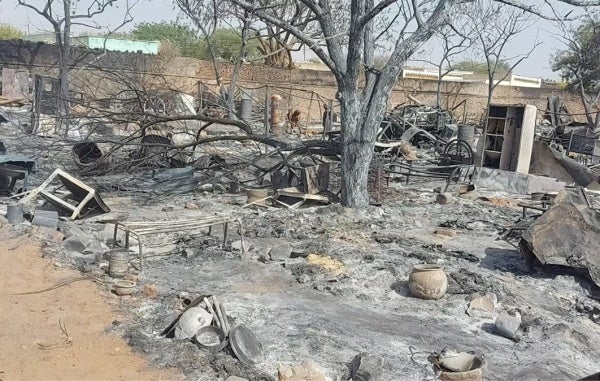Lire la version en français / Hier auf Deutsch lesen / Lea la versión en español
We can all likely remember when people used to say, “if only the world knew!”
They would be looking at a crisis or conflict filled with appalling atrocities, and they thought outside governments were merely unaware of what was going on. Or they thought, if the horrific facts were more widely known, politicians would be under unavoidable public pressure to do something.
In other words, people believed the only thing preventing the world from stopping atrocities in Ruritania was a lack of information about them.
Hardly anyone believes this today.
Sure, a few activists and a couple as-yet-unjaded journalists desperately chasing that one story, that one photo or video, they think is going to finally move the world to act on the horrific situation in Ruritania. But they soon learn the world simply doesn’t work like that anymore.
The truth is, the idea that stopping atrocities is mostly a matter of spreading awareness about them probably died many years ago. Don’t ask which crisis put an end to the notion - it’s been weakening further and further with each crisis.
Governments have always had access to intelligence and surely knew what was happening in various Ruritanias better than most people. But increasingly over the years with the explosion of information channels, especially social media, awareness is widespread. It’s not only governments that can’t claim ignorance about what’s going on, it’s everyone. The information is everywhere.
And reliable information is easily at hand, too. Even in conflict situations, when warring parties are throwing out lies and disinformation to gain support – or at least, to cause confusion – there are trustworthy sources folks can depend on. This is where Human Rights Watch and other organizations come in, with facts found through meticulous research, all publicly available.
But even reliable information on its own is not enough – facts are not enough – to get governments to act. They need to be convinced, cajoled, and sometimes embarrassed into doing the right thing. That’s why Human Rights Watch and other groups don’t just have researchers but also advocates and media experts, people whose job it is to help do the convincing.
It is not easy to persuade governments to do something on any issue. Politicians have their own priorities, and doing anything likely costs public money and, more importantly for them, their time, the rarest of all resources. Political will often just isn’t there.
But: it’s not our job to moan about a lack of political will; it’s our job to create it. This means changing politicians’ calculations and raising the costs of their inaction.
We all wish ending atrocities were as easy as saying “if only the world knew!” and then sharing the facts. We all understand, it’s much, much harder than that.












